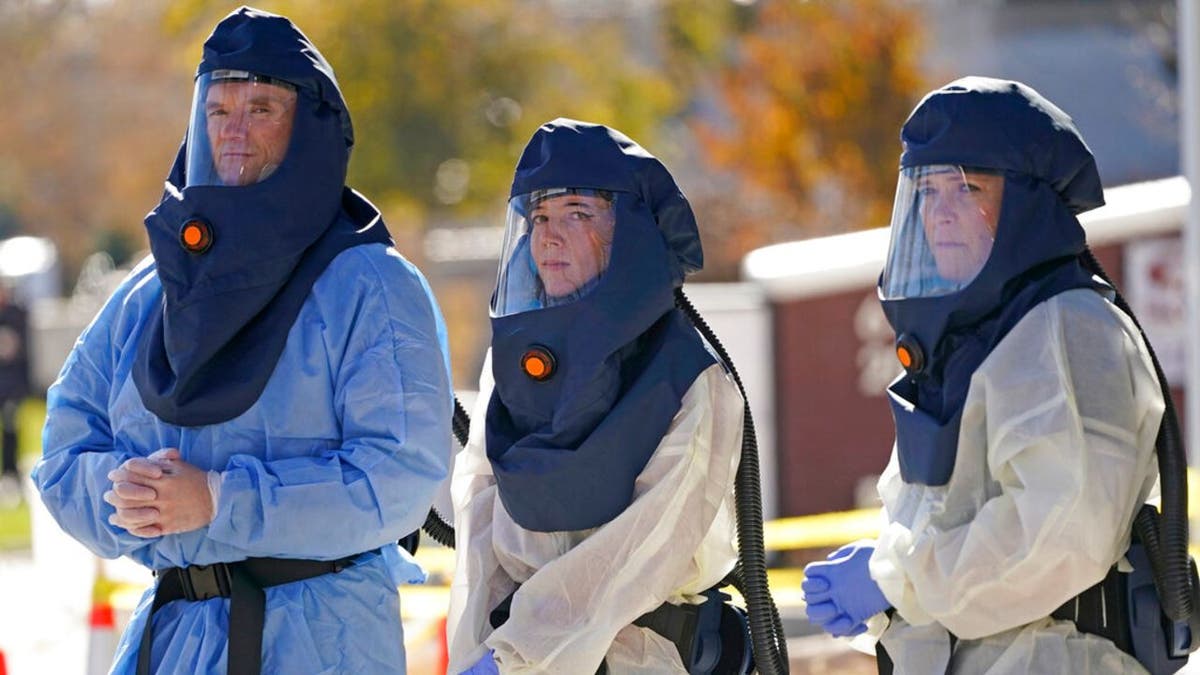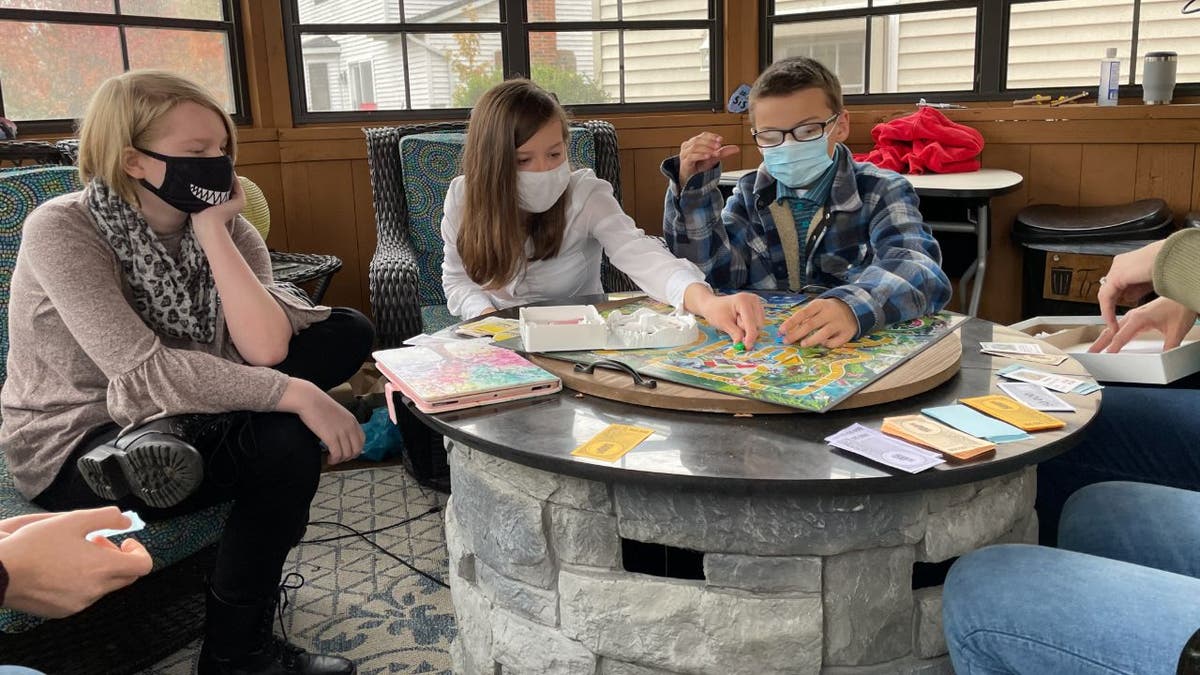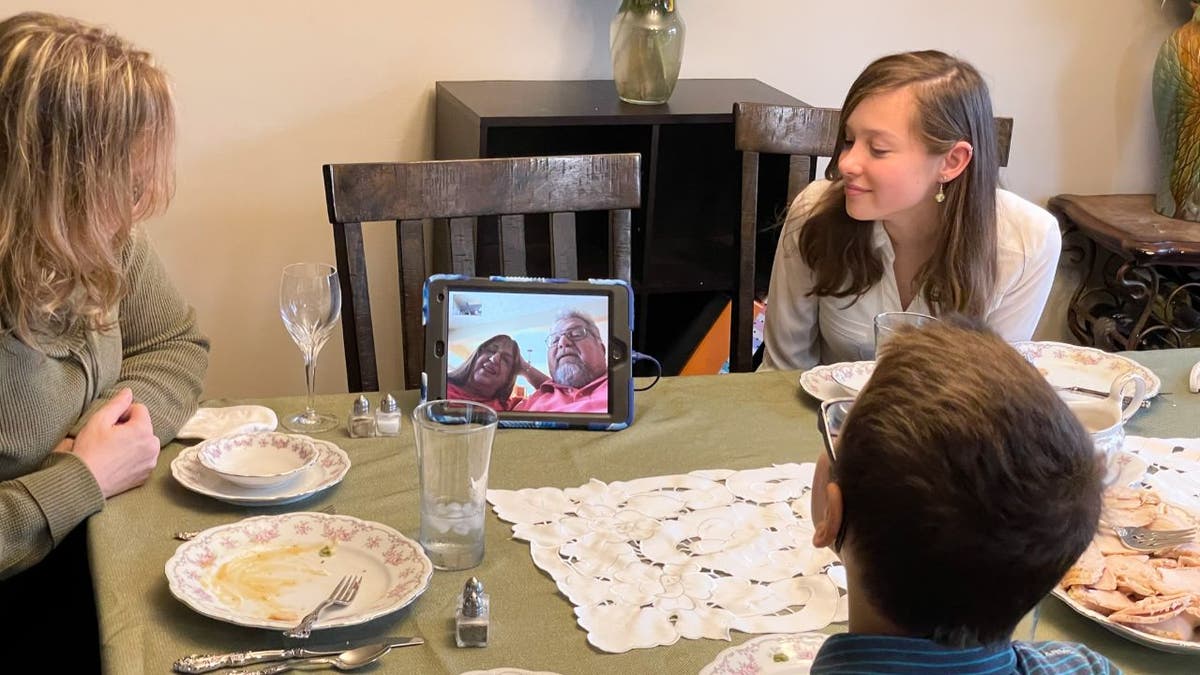Fox News Flash top headlines for November 12
Fox News Flash top headlines are here. Check out what's clicking on Foxnews.com.
With big holidays coming up at the tail end of 2020, medical experts are worried that Americans traveling for family gatherings on days like Thanksgiving or Christmas could spread COVID-19.
Nearly 40% of Americans will likely attend a gathering with 10 people, according to a new national survey by The Ohio State University Wexner Medical Center. And a third of them reportedly will not ask guests to wear masks.
The findings come as new coronavirus cases are trending up across the U.S. The Centers for Disease Control and Prevention reported more than 143,000 new cases on Wednesday alone, and the virus has so far infected more than 10.3 million Americans and killed more than 241,000.

Salt Lake County Health Department public health nurses look on during coronavirus testing outside the Salt Lake County Health Department Thursday. (AP Photo/Rick Bowmer)
THANKSGIVING PIE DEBATE ON ‘PECAN’ PRONUNCIATION RESOLVED
The CDC recommends precautions like wearing a mask and socially distancing at least 6 feet from people you don’t live with. But as the weather gets colder, gatherings are being forced inside, where the virus can spread more easily, officials warn.
Dr. Iahn Gonsenhauser, chief quality and patient safety officer at the OSU Wexner Medical Center, said in a written statement that holiday get-togethers could be prime conditions for the virus to spread.
“When you’re gathered together around the table, engaged in conversation, sitting less than 6 feet apart with your masks down, even in a small group, that’s when the spread of this virus can really happen,” Gonsenhauser said.

The CDC recommends precautions like wearing a mask and socially distancing at least six feet from people you don’t live with. (The Ohio State University Wexner Medical Center)
CLICK HERE TO GET THE FOX NEWS APP
The safest solution is to cancel in-person plans and celebrate virtually, according to Gonsenhauser, though he recognized that isn’t what people want to hear.
For anyone who does opt to have guests, he recommended putting a safety plan in place and explaining it to everyone attending. For example, everyone could wear masks at all times, seating could be arranged and separated by household and food service could be limited to just one or two people.
It’s also important to keep up-to-date on coronavirus rates and restrictions in any areas where out-of-town guests will be coming from, according to Gosenhauser.
“If you have someone in your household who’s high risk and you’re in a low incidence area, you’re going to want to think twice about having a celebration where people are coming from an area where there’s a lot of virus in the community,” he said.

Gonsenhauser suggested trying new traditions this year, like holding a virtual dinner or dropping off surprises on loved ones’ front doors. (The Ohio State University Wexner Medical Center)
CLICK HERE TO SIGN UP FOR OUR LIFESTYLE NEWSLETTER
The pandemic could add headaches for those traveling for holidays. Many states have instituted travel restrictions that require those arriving to be tested for COVID-19 or quarantine for as long as two weeks. Some communities have also increased restrictions on nonessential businesses as virus numbers have climbed again.
Gonsenhauser suggested trying new traditions this year, like holding a virtual dinner or dropping off surprises on loved ones’ front doors.
He said, “We’re going to look back at what happened during this season and ask ourselves, ‘Were we part of the solution or were we part of the problem?’”

